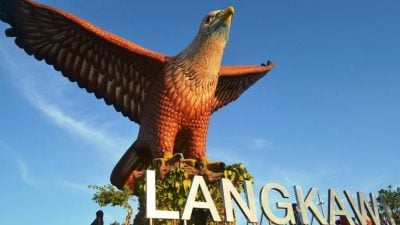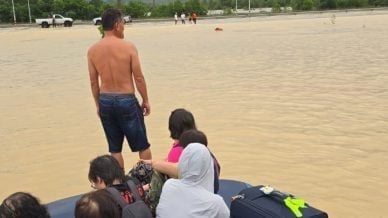
Chen Yuan Bi's father was from the Guangdong province of China. He traveled out of China for Hong Kong, Indonesia, Malaysia and Thailand before the Second World War broke out in Mainland China.
"He went to many countries, but could not save much money!"
Chen's father worked as a hawker selling dried pork. pork floss and other stuff in the Chinatown of Bangkok, where he met his future wife, Chen's mother.
Chen was born in Thailand and came to Laos with his parents at the age of six.
Now 61, Chen speaks very fluent Mandarin Chinese.
"The first generation of overseas Chinese mostly came from Thailand. They settled down and then set up their families here.
"We later had Chinese migrants from Mainland China, Indonesia, Vietnam and Malaysia. Some from Cambodia."
Most Chinese Laotians are businessmen and they are relatively affluent.
"Later the government started to forfeit the people's wealth, and rich people began to abandon their shops and flee the country.
"As we didn't have much money, we couldn't go anywhere else."
Chen said relationship between China and Laos and Vietnam was already quite bad before the Sino-Vietnamese war broke out.
"Laotians are more pro-Vietnam, but as most of the Chinese here were Chinese nationals, they felt intimidated.
"The government began to implement curfew from 1975, and gatherings of six people and above were outlawed."
Anti-Chinese sentiment was high in the same year, and many local Chinese businesses were uprooted. Factories and shops were shut down while Chinese language newspapers and Chinese schools were banned."
Back then there were three Chinese language dailies in the country with a combined daily circulation of about 3,000 copies.
Additionally, there were 12 Chinese schools, all closed down except Liaodu Chinese School.
Continuous operation for over 80 years
Founded in 1937, Liaodu Chinese School has been in continuous operation for more than eight decades now. Today, the school boasts a kindergarten, a primary school, lower secondary school and upper secondary school. It even organizes matriculation classes jointly with the Overseas Chinese University of Fujian, China.
Liaodu now has 3,080 students in all, with a teaching staff of 189.
As former chairman of Liaodu Chinese School board of directors, Chen said Liaodu used to have only primary school, and started to have a secondary school only after 1970. Most of the teachers there have come from Taiwan, Vietnam and Cambodia.
Laos used to maintain diplomatic ties with Taiwan until 1961, when it established official ties with China.
Due to the political turmoil in Laos, many students and Chinese residents there left the country for their own safety, putting the Liaodu Chinese School in a dilemma of student and fund shortage. The situation began to improve only after 1990.
Chen applied for Laos citizenship in 1992 and completed the procedures within only a few months.
"It is much more difficult now. You need to live here for five to ten years and have no criminal records. The naturalization process now takes almost two years!"
Despite being a Laotian, Chen is still very Chinese in his day-to-day life.
"We still celebrate Lunar New Year and keep all the traditional customs such as lion dance during the New Year."
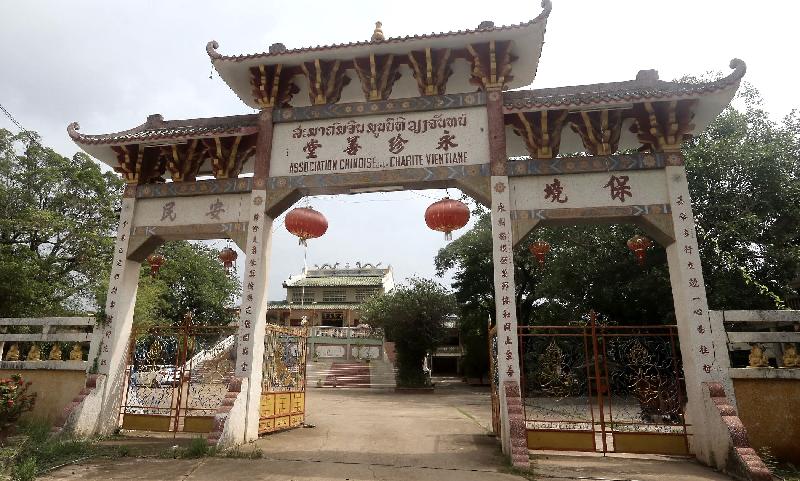
Citizenship
Jinda Oudomsin is a third generation Chinese in Laos. His grandparents came from the Guangdong province of China while both his parents were born here.
While he was working for a Taiwan-invested hotel in Laos in 1990, he was sent by his company to pursue a one-year hotel management course in Taiwan.
He initially planned to send his own children to Liaodu Chinese School but later changed his mind after finding that the school's standard had dropped. He eventually sent his children to an international school instead.
"Chinese language is very important at this moment, but I want my kids to learn English for some time first before learning the Chinese language."
Because of his overseas Chinese status, he was denied a scholarship. He later decided to apply for Laotian citizenship in the 1990s in order to protect his rights.
"After my younger sister became a Laotian citizen, she was offered scholarship for her excellent academic performance, to further her studies in Japan.
"She is the manager of a Laotian NGO today."
Fleeing the country
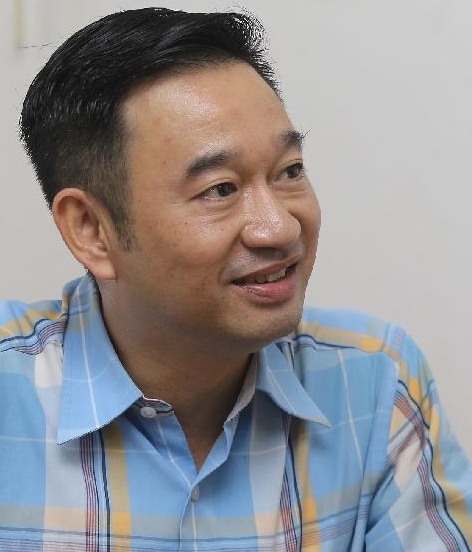
The shift in government policies in 1975 made it very difficult for the local Chinese to do business in the country, while many fled the country across the Mekong into Thailand.
"Actually many who crossed the Mekong into Thailand died. Some chartered a boat but the boatman purposely made the boat capsize and many people were drowned," said Oudomsin.
"These boatman were eyeing the valuables carried by these people."
Back in those years his father was a spectacles and luxury watch dealer and when his father saw that things were not going got right, he was prepared to leave.
"My father had thought of leaving the country, We even sold all our mattresses. But later we saw that the situation was slowly back to normal and we decided to continue staying here.
"However, my uncles and aunts had all left."
Government spies
"The government was sending officials to work in the shops," Oudomsin said, "but the business owners did not have to pay them as their salaries were paid by the government."
According to him, the government intended to find out which shops were particularly rich and "who was doing business properly and who was financing the resistance forces.
"There were still sporadic protests and demonstrations at that time, and when they saw the soldiers, they changed their shirts and disguised as ordinary citizens taking refuge in people's houses."
After 1990, some of the Chinese Laotians who had left the country began to come back.
Oudomsin said the government has in recent years planned to invite overseas Laotians to return to the country and help rebuild the economy.
"Of course, they will also take into consideration the conditions offered by the government, along with the political environment, including the availability of business-friendly polices, national security and the state of medical system, among others.
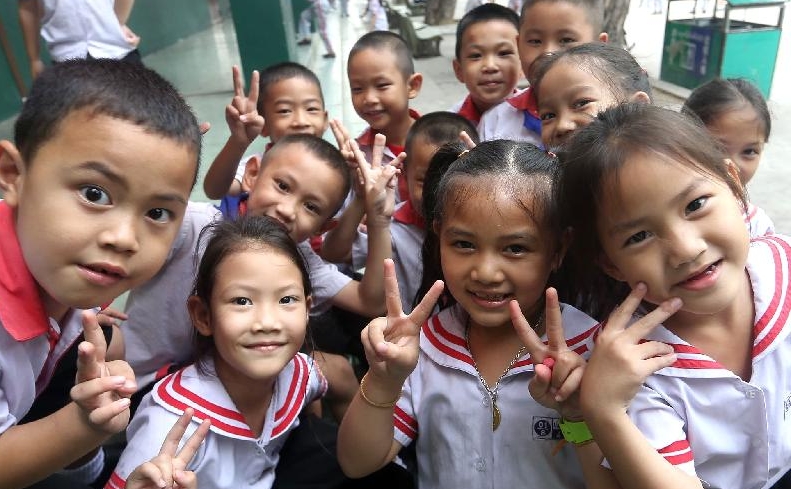
ADVERTISEMENT
ADVERTISEMENT






